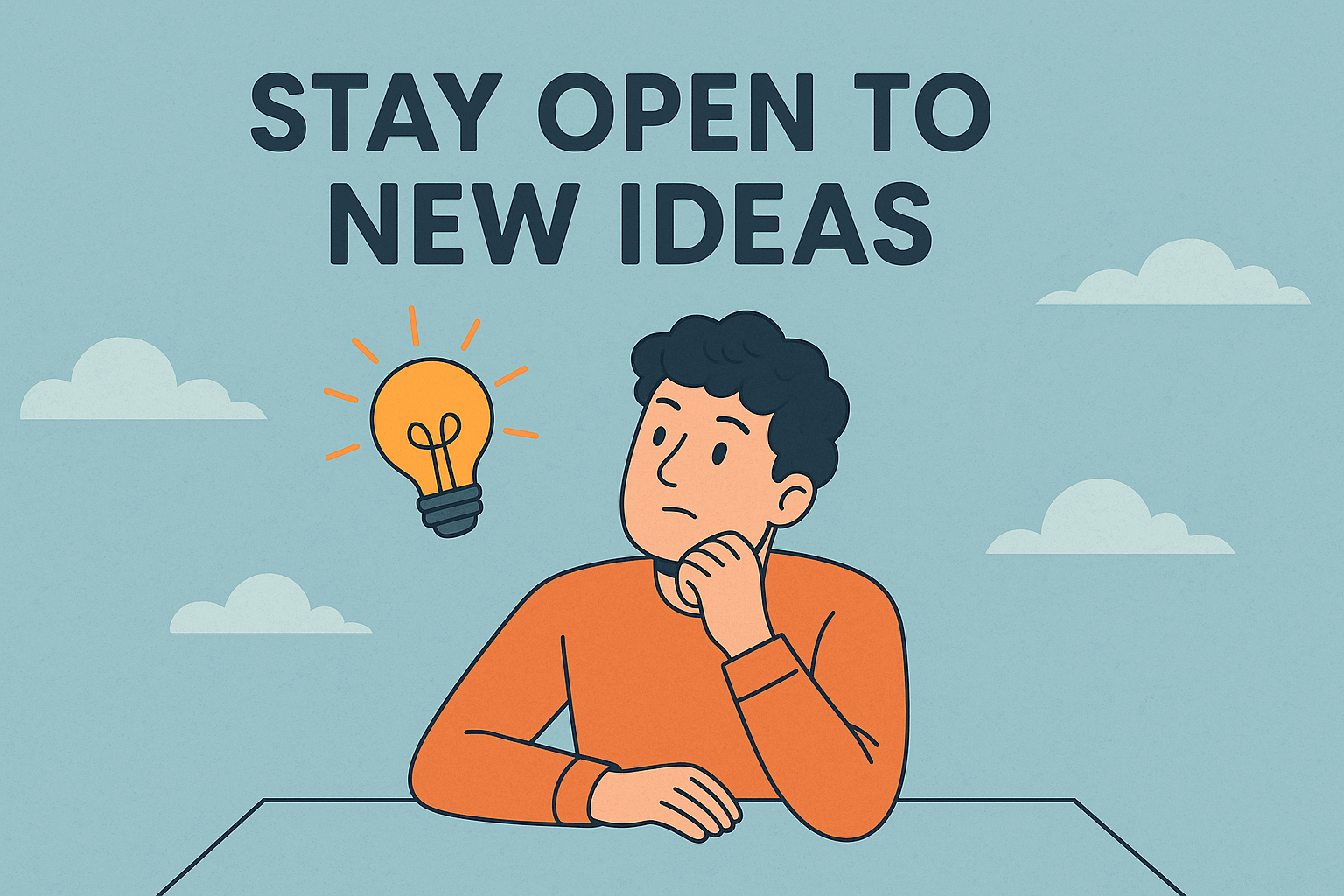In a world of constant change, where innovation reshapes the future at every turn, the ability to stay open to new ideas is more than a personal virtue—it’s a critical survival skill. The phrase “stay open to new ideas pondershort” encapsulates a mindset of curiosity, flexibility, and thoughtful reflection, reminding us that breakthroughs often start where resistance ends.
Let’s explore how this powerful principle can be understood, nurtured, and applied in real life.
I. Understanding Open-Mindedness
At its core, open-mindedness means being receptive to new information, different viewpoints, and unfamiliar possibilities. It doesn’t require abandoning your beliefs but rather being willing to evaluate other perspectives fairly. Staying open to new ideas isn’t about indecisiveness—it’s about intellectual humility.
The term “pondershort” adds an insightful twist here. It suggests that one should briefly pause—ponder—before rejecting something unfamiliar. In other words, reflect before reacting.
When you “stay open to new ideas pondershort,” you’re building a habit of deliberate openness, balancing curiosity with critical thinking.
II. Benefits of Staying Open to New Ideas
An open mind has the potential to transform your life in countless ways. Whether you’re a student, entrepreneur, artist, or simply navigating life’s daily challenges, adopting this mindset creates long-term advantages.
Here are some of the top benefits:
| Benefit | How It Helps You |
|---|---|
| Enhanced Creativity | Exposure to varied ideas fuels innovative thinking. |
| Stronger Relationships | Listening to others with empathy deepens understanding and trust. |
| Better Decision-Making | Considering different options leads to more informed, balanced choices. |
| Increased Adaptability | Open-minded people are better at handling unexpected changes or disruptions. |
| Continuous Growth | Openness fuels personal development and lifelong learning. |
When we “stay open to new ideas pondershort,” we choose progress over pride and connection over control.
III. Common Challenges to Open-Mindedness
Despite its value, staying open to new ideas is often easier said than done. Several natural human tendencies and societal influences can stand in the way:
1. Cognitive Biases
We are all prone to confirmation bias—seeking information that supports what we already believe. This bias clouds our judgment and creates echo chambers.
2. Fear of Change
New ideas often imply that something must change, and change brings uncertainty. Fear of failure, discomfort, or loss of control can make us resist unfamiliar concepts.
3. Social Conditioning
From childhood, many people are taught to stick to specific norms or beliefs. Cultural and familial traditions, though meaningful, may sometimes discourage questioning or exploration.
4. Ego and Identity
People often associate their beliefs with their identity. So, when a belief is challenged, it can feel like a personal attack, triggering defensive reactions.
Recognizing these barriers is the first step to overcoming them. To truly “stay open to new ideas pondershort,” we must become aware of the invisible walls in our thinking.
IV. How to Cultivate Open-Mindedness
Fostering a mindset of openness doesn’t happen overnight. But through consistent practice, anyone can develop this life-enhancing habit.
Practical Strategies to Stay Open to New Ideas:
- Pause Before Responding: Take a moment to reflect when confronted with a new idea. This “pondershort” allows space for curiosity instead of defensiveness.
- Engage with Different Perspectives: Seek out books, podcasts, and conversations from people with differing views.
- Practice Active Listening: Listen not just to reply but to truly understand the other person’s viewpoint.
- Ask Questions: Replace assumptions with inquiries. Try: “What makes you feel that way?” or “Can you explain more?”
- Experiment Regularly: Try new activities, foods, or routines. Simple changes can stretch your adaptability.
- Keep a Reflection Journal: Document moments when new ideas challenged you and what you learned from them.
- Adopt a Learner’s Mindset: View every situation as an opportunity to grow rather than as a test of what you already know.
V. Real-World Applications of Open-Mindedness
The principle to “stay open to new ideas pondershort” isn’t just a philosophical nicety—it’s deeply practical and widely applicable.
In Education:
Open-minded students absorb knowledge faster, question deeper, and are better prepared for interdisciplinary thinking. Teachers also benefit by adopting evolving pedagogical strategies.
In the Workplace:
Modern workplaces thrive on collaboration and innovation. Employees who welcome feedback and diverse perspectives help foster a productive and inclusive environment.
| Open-Mindedness in the Workplace | Impact |
|---|---|
| Open to feedback | Improves performance and teamwork |
| Open to innovation | Leads to faster problem-solving |
| Open to diversity | Fosters cultural intelligence and respect |
In Relationships:
Friendships and partnerships flourish when both parties feel heard. Openness reduces conflict and promotes empathy, even in the face of disagreement.
In Personal Development:
Whether learning a new skill or traveling to a foreign place, those who embrace the unfamiliar grow more confident and resilient.
VI. Conclusion: Let the Ideas In
To “stay open to new ideas pondershort” is to adopt a philosophy of intentional curiosity. It’s not about agreeing with every new thought, but about being willing to explore its merit. In a world that’s constantly evolving, openness is not just desirable—it’s necessary.
Let new ideas in. Let go of the fear that difference means danger. And remember: each time you pause to ponder instead of pushing away, you expand the boundaries of your mind and your world.
Other Articles
Phone Number Durostech: Company Overview and Contact Information
The Ultimate Guide to 1.5f8-p1uzt Texture: Features, Uses, Benefits, and Future
FA3020PF Westinghouse: Complete Guide to Features, Specs, Installation & Uses
Alyson Heather Belcourt Tattoo: The Soul of Artistic Expression in Ink








